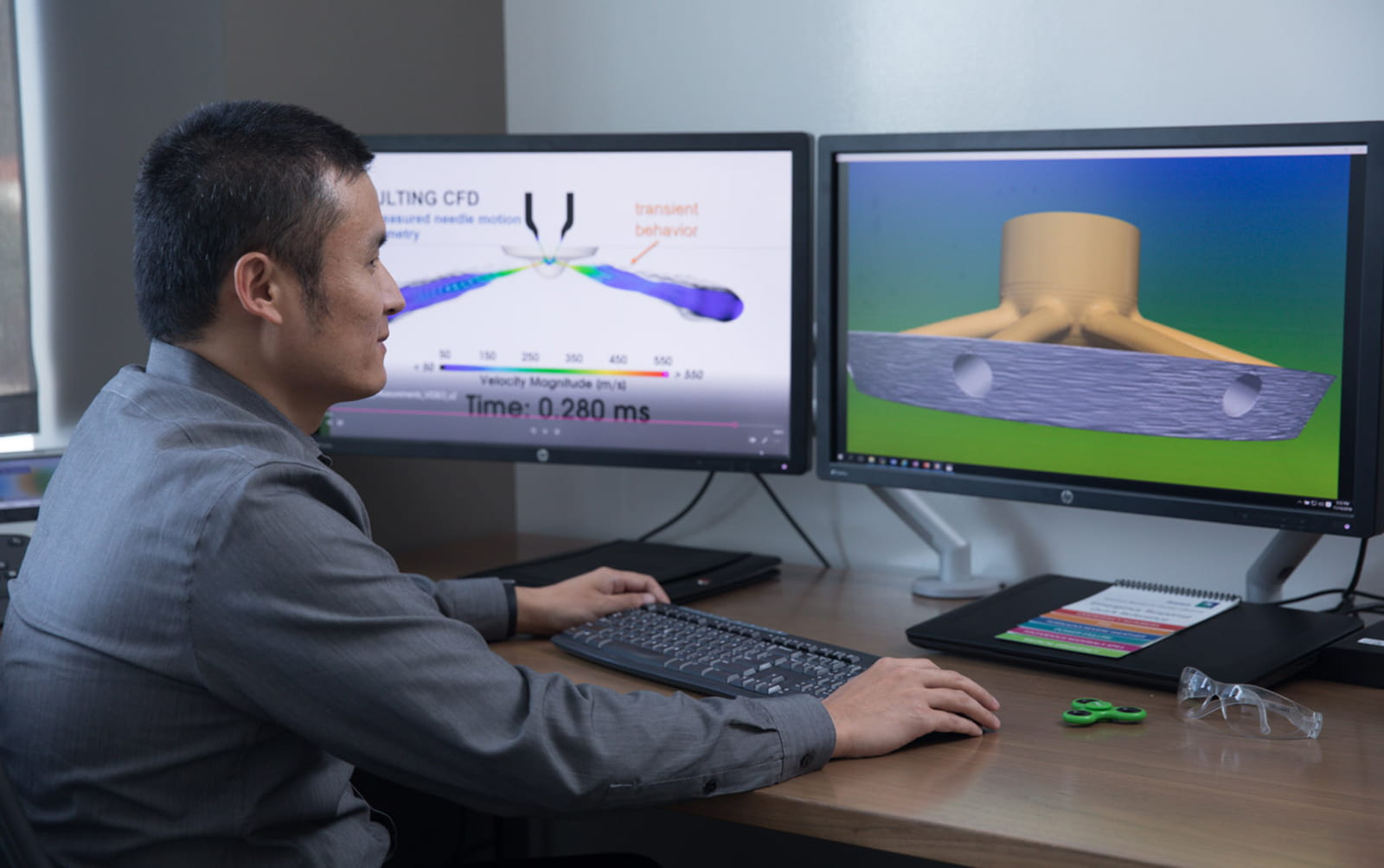Innovation in high-performance computing earns Aramco and collaborators HPCwire award

Yuanjiang Pei, a Lab Scientist at Aramco Research Center – Detroit, specializes in computational fluid dynamics and was part of the team investigating the use of a heavy-duty engine injector for gasoline compression ignition. Aramco Americas researchers in Detroit are part the company’s global R&D network and its dedicated engines and fuels program.
For the second year in a row Aramco Research Center-Detroit in collaboration with Argonne National Lab and Convergent Science won a Reader's Choice award from HPCwire magazine for the most innovative project using high-performance computing in industry.
The entry “HPC & Machine Learning Accelerated Injection Design Optimization for the Next Generation Ultra-Efficient, Low-Carbon Footprint Propulsion Systems” involved simulations combined with machine-based learning models to make fuel-air mixing predictions more accurate.
The team of researchers investigated the use of a heavy-duty engine injector for gasoline compression ignition, an advanced combustion concept that can offer significant gains in efficiency. The capabilities of the Advanced Photon Source (APS), a DOE Office of Science user facility at Argonne National Laboratory, were used to obtain high-resolution scans of the injector using high-energy x-rays. APS data was incorporated into high-fidelity CONVERGE simulations that resolved micron-scale manufacturing defects in the injector geometry. Accounting for the geometry imperfections significantly improved the predictive capabilities for cavitation inside the injector, as well as the subsequent fuel-air mixing, combustion, and emissions formation.
“This was the first time that micron-scale manufacturing defects in fuel injector geometries were resolved using HPC-enabled coupled in-nozzle flow and spray simulations. Compared to previous studies using nominal injector geometries, we saw a substantial difference in engine emission predictions,” said Dr. Yuanjiang Pei, a Lab Scientist at Aramco Research Center – Detroit.
“The last few years we have been working toward trying to understand what really happens inside automotive injectors for heavy-duty engines,” said Dr. Roberto Torelli, a research scientist at Argonne. “Now we can rely on HPC to resolve very small-scale features inside an injector, that happen at very small time scales as well, so we can get a better idea of how these features will eventually influence the engine performance in the real world.
The research team applied a machine learning technique using the Theta supercomputer, housed at the Argonne Leadership Computing Facility, to enable fast optimization of injector design to support the development of cleaner engines.
“Internal combustion engines still have a vital role to play in future transportation, so it's imperative we continue to improve them,” said Dr. Kelly Senecal, Co-Owner and Vice President of Convergent Science.
Aramco's work with engine design and fuel formulations is pushing forward higher efficiency and lower emissions advancements. “This a great example of applied research and collaboration to help reduce the carbon footprint from the transport sector,” said Ghaithan Al-Muntasheri, Director of Research & Development at Aramco Americas.



